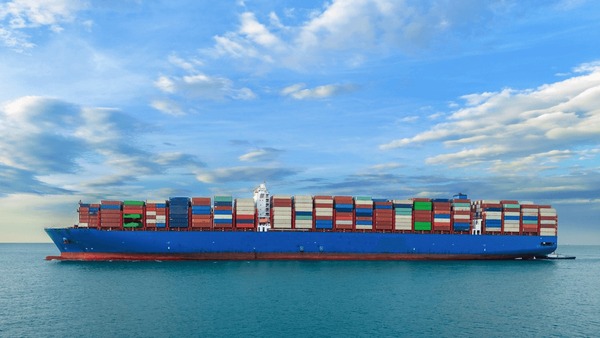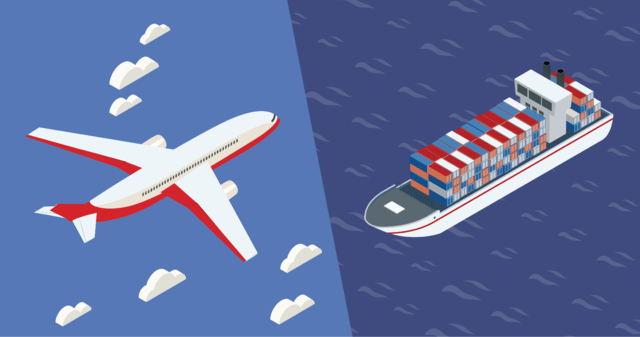- By TOP CHINA FREIGHT
- September 17, 2025
- Shipping
Table of Contents
When importing or exporting, choosing the right freight forwarder Guangzhou China can determine the success of your business operations. With Guangzhou’s strategic port and international trade hub status, businesses need reliable logistics partners to ensure smooth shipping, cost efficiency, and compliance with customs regulations. This guide explores everything you need to know about selecting the right forwarder, shipping options, and practical strategies to optimize your logistics.

Why Choose a Freight Forwarder in Guangzhou China?
Guangzhou is one of China’s largest trading cities with excellent sea, air, and land connectivity. A professional freight forwarder here provides:
- Access to major shipping lines and airlines.
- Cost-effective LCL and FCL solutions.
- Customs clearance and documentation expertise.
- Door-to-door and DDP shipping options.
Moreover, freight forwarders in Guangzhou understand local supply chain networks, making them ideal for exporters handling high-volume shipments.
What Shipping Methods Are Available from Guangzhou?
Businesses shipping from Guangzhou have three main transport choices: sea freight, air freight, and land freight. Each option has unique advantages depending on budget, urgency, and cargo type.
| Shipping Method | Transit Time | Cost Level | Best For | Pros | Cons |
|---|---|---|---|---|---|
| Sea Freight | 25–40 days | Low | Bulk cargo | Cheapest for large loads | Slow transit |
| Air Freight | 3–7 days | High | Urgent cargo | Fast delivery | Expensive |
| Land Freight | 7–15 days | Medium | Cross-border trade | Flexible for Asia routes | Limited destinations |
Therefore, choosing the right mode of transport often requires balancing speed with cost efficiency.
How Much Does Shipping from Guangzhou Cost?

The cost of shipping depends on weight, volume, and destination. A freight forwarder Guangzhou China can secure competitive rates by consolidating shipments and leveraging partnerships.
| Container Type | Average Cost to USA | Average Cost to Europe | Average Cost to Southeast Asia |
|---|---|---|---|
| 20ft FCL | $2,000 – $2,800 | $1,800 – $2,500 | $900 – $1,300 |
| 40ft FCL | $3,500 – $4,800 | $3,200 – $4,200 | $1,600 – $2,000 |
| LCL (per CBM) | $100 – $180 | $90 – $150 | $50 – $80 |
Additionally, seasonal demand and fuel prices can affect freight charges. Therefore, working with an experienced forwarder helps you plan shipments at optimal times.
What Documents Are Required for Customs Clearance?

Smooth shipping relies on accurate documentation. Freight forwarders assist with preparing and submitting the following:
| Document | Purpose |
|---|---|
| Bill of Lading | Contract of carriage |
| Commercial Invoice | Declares value of goods |
| Packing List | Cargo details and packaging |
| Certificate of Origin | Proof of production country |
| Importer Exporter Code (IEC) | Mandatory for importers |
How Long Does Shipping Take from Guangzhou?
Transit times vary by destination and mode:
While sea freight is slower, it remains the most cost-effective choice for bulk shipments. Air freight, however, is recommended for urgent orders.
What Are the Pros and Cons of Air vs Sea Freight?

| Factor | Sea Freight | Air Freight |
|---|---|---|
| Cost | Low | High |
| Speed | Slow | Fast |
| Cargo Type | Bulk cargo | Perishable/urgent goods |
| Reliability | Weather delays possible | More reliable |
| Environmental Impact | Lower emissions per ton | Higher emissions |
Therefore, a hybrid strategy using both air and sea is often adopted by businesses to balance speed and budget.
How to Select the Best Freight Forwarder in Guangzhou?
When choosing a freight forwarder, consider the following:
- Experience in handling shipments to your target country.
- Service scope (FCL, LCL, air freight, customs clearance).
- Transparency in pricing and communication.
- Network strength with carriers and local agents.
Additionally, checking references and client reviews helps you avoid unreliable providers.
Case Study: Reducing Costs for an Electronics Importer

A U.S. electronics importer faced high shipping costs when using air freight for urgent orders. By partnering with a freight forwarder Guangzhou China, they adopted a hybrid model:
- High-value small orders shipped via air freight.
- Bulk shipments sent by sea freight.
- Consolidation of LCL cargo with other shippers.
Result: The importer reduced logistics costs by 28% while maintaining timely deliveries. This highlights how strategic planning with a reliable forwarder can transform supply chain efficiency.
Can Freight Forwarders Provide Door-to-Door Service?

Yes. Many Guangzhou-based forwarders offer door-to-door and DDP (Delivered Duty Paid) shipping, handling pickup, customs, and delivery to your warehouse. This service saves businesses time and ensures hassle-free logistics management.
Should Small Businesses Use a Freight Forwarder?
Absolutely. Small businesses benefit from shared LCL shipping, simplified documentation, and lower destination charges. Moreover, freight forwarders provide tailored solutions for startups lacking in-house logistics teams.
Conclusion
Working with a professional freight forwarder Guangzhou China is essential for cost efficiency, smooth customs clearance, and timely deliveries. Whether you ship bulk goods by sea, urgent cargo by air, or cross-border orders by land, the right forwarder helps streamline your supply chain. Additionally, forwarders reduce risks and optimize costs by leveraging their carrier networks and expertise. Choosing wisely ensures long-term business growth and reliable global trade.
Need a Shipping Quote?
If you want expert guidance and peace of mind, our team is ready to assist.
TJ China Freight offers tailored solutions to help businesses of all sizes ship more reliably from China.

FAQ
Q1:How can a freight forwarder Guangzhou China help e-commerce sellers?
They provide FBA delivery, LCL consolidation, and cost-efficient shipping, ensuring faster delivery schedules for online businesses.
Q2:Do Guangzhou freight forwarders provide temperature-controlled shipping?
Yes, they handle cold chain logistics, ensuring safe transport of perishable goods with customs clearance.
Q3:Can freight forwarders in Guangzhou manage project cargo?
Yes, they coordinate oversized shipments, secure permits, and provide cost-effective transport solutions.
Q4:What role do Guangzhou freight forwarders play in supply chain management?
They optimize supply chains by reducing shipping costs, planning delivery schedules, and offering flexible transport modes.
Q5:Do Guangzhou freight forwarders assist with packaging and labeling?
Yes, they provide export packaging, palletizing, and labeling to meet customs requirements and ensure cargo safety.
